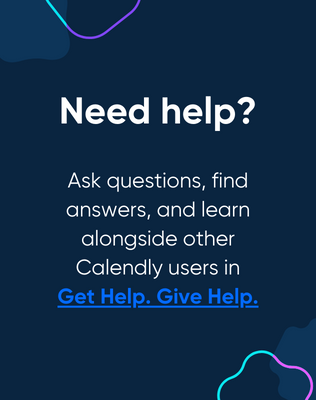Hi all,
I’m working on an API integration for a website, and even though (for now) it’s working correctly, I’m wondering if I’m there’s a better way to get a user availability for an event type to display in a calendar component.
Since `event_type_available_times` has a 7-day date range limit, I’m currently doing 4 consecutive calls to fetch the availability for each month. The problem is that it’s incredibly slow, so when the user first opens up the calendar, or then switches to the next month, it’s taking around 5-7 seconds to complete all the requests and display the days with availability.
Is there a more optimized/faster way to do this?
Thank you!




